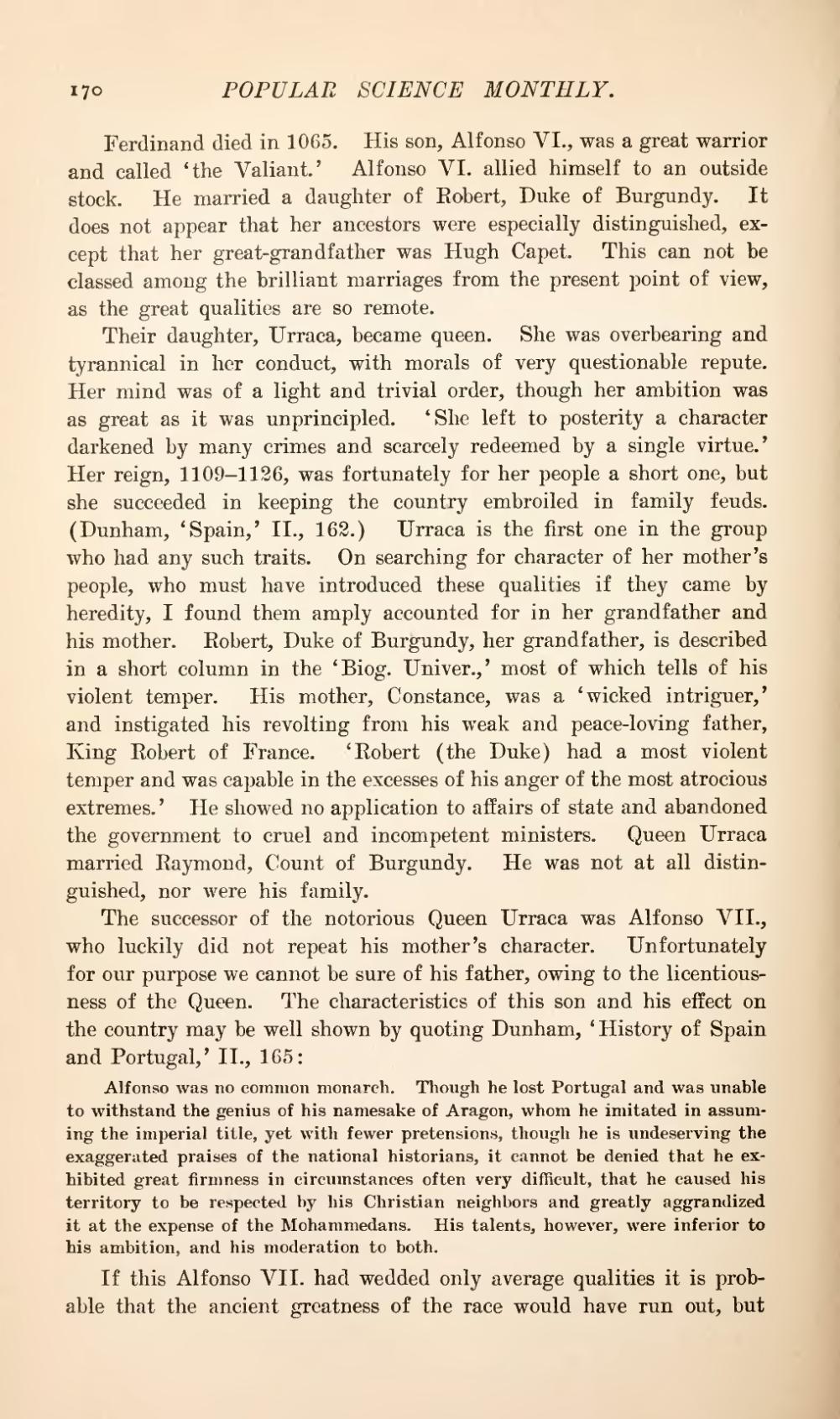Ferdinand died in 1065. His son, Alfonso VI., was a great warrior and called 'the Valiant.' Alfonso VI. allied himself to an outside stock. He married a daughter of Robert, Duke of Burgundy. It does not appear that her ancestors were especially distinguished, except that her great-grandfather was Hugh Capet. This can not be classed among the brilliant marriages from the present point of view, as the great qualities are so remote.
Their daughter, Urraca, became queen. She was overbearing and tyrannical in her conduct, with morals of very questionable repute. Her mind was of a light and trivial order, though her ambition was as great as it was unprincipled. 'She left to posterity a character darkened by many crimes and scarcely redeemed by a single virtue.' Her reign, 1109-1126, was fortunately for her people a short one, but she succeeded in keeping the country embroiled in family feuds. (Dunham, 'Spain,' II., 162.) Urraca is the first one in the group who had any such traits. On searching for character of her mother's people, who must have introduced these qualities if they came by heredity, I found them amply accounted for in her grandfather and his mother. Robert, Duke of Burgundy, her grandfather, is described in a short column in the 'Biog. Univer.,' most of which tells of his violent temper. His mother, Constance, was a 'wicked intriguer,' and instigated his revolting from his weak and peace-loving father, King Robert of France. 'Robert (the Duke) had a most violent temper and was capable in the excesses of his anger of the most atrocious extremes.' He showed no application to affairs of state and abandoned the government to cruel and incompetent ministers. Queen Urraca married Raymond, Count of Burgundy. He was not at all distinguished, nor were his family.
The successor of the notorious Queen Urraca was Alfonso VII., who luckily did not repeat his mother's character. Unfortunately for our purpose we cannot be sure of his father, owing to the licentiousness of the Queen. The characteristics of this son and his effect on the country may be well shown by quoting Dunham, 'History of Spain and Portugal,' II., 165:
If this Alfonso VII. had wedded only average qualities it is probable that the ancient greatness of the race would have run out, but
